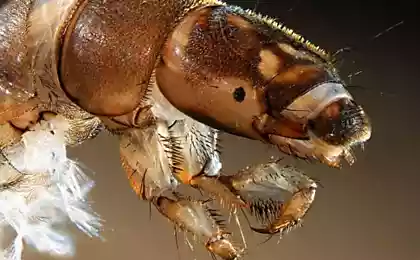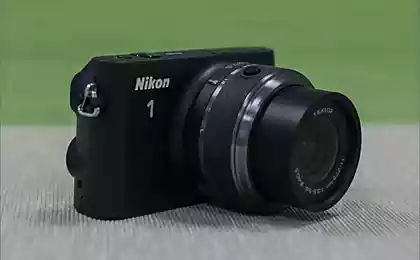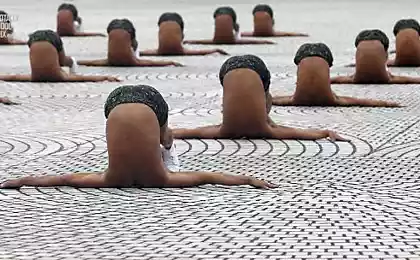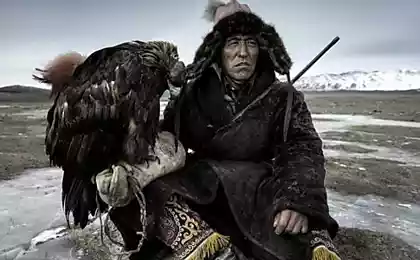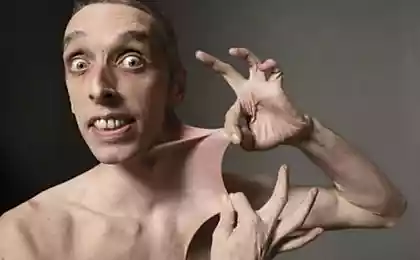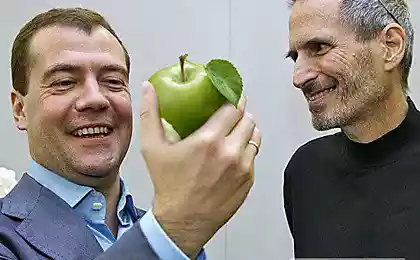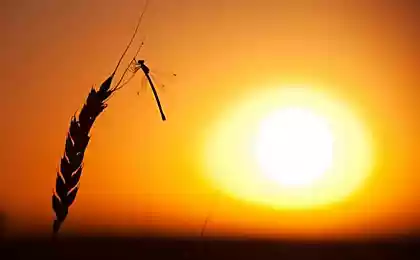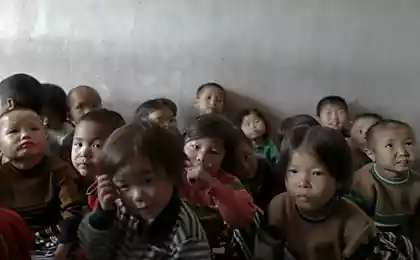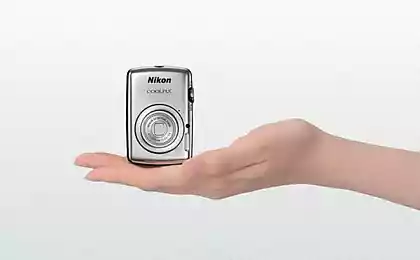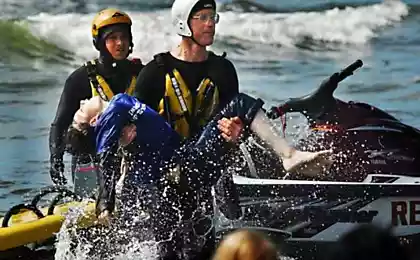951
Nikon Small World Photo Contest 2011 (18 photos)
A few days ago announced the winners of Photo Contest Nikon Small World 2011. The photos submitted for the contest this year, an amazing variety of living beings and natural phenomena, ranging from the eyes of freshwater shrimp to fine scales on butterfly wings and snowflakes cancer cells.
Head and eye freshwater prawn, picture Jose R. Almodovar center of microscopy, Faculty of Biology, University of Mayaguez, Puerto Rico.
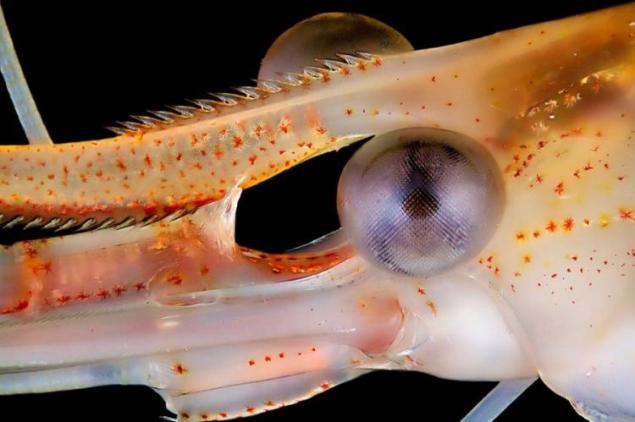
Dr. Douglas Clark of San Francisco, California, presented to the competition this photograph of a butterfly wing scales (Cethosia Biblis) in incandescent light.
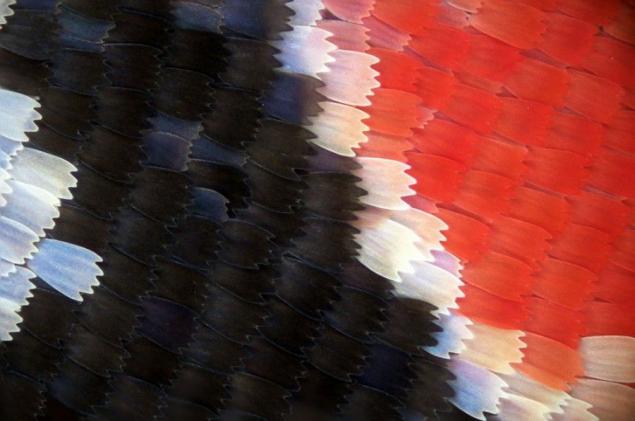
Cancer cells are photographed at a magnification of 3000 times. Photo of Thomas Dirinka from the National Center for Microscopy in La Jolla, California, took twelfth place.
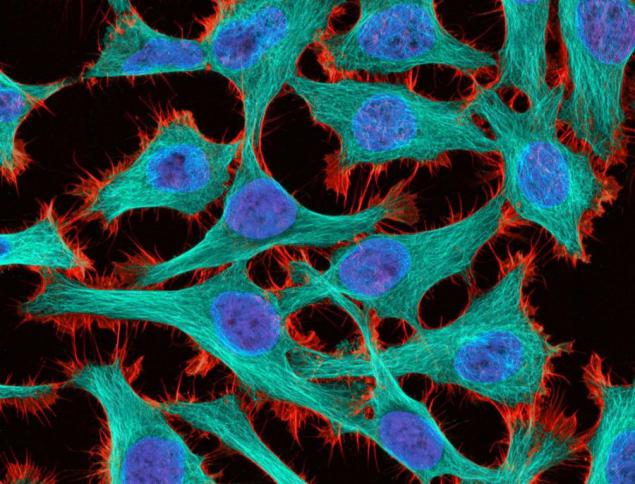
Ranked fourth in the competition, a photograph taken by Dr. Robin Young of the University of British Columbia in Vancouver, British Columbia. The photo depicted liverworts (Lepidozia reptans) with increasing twenty times.
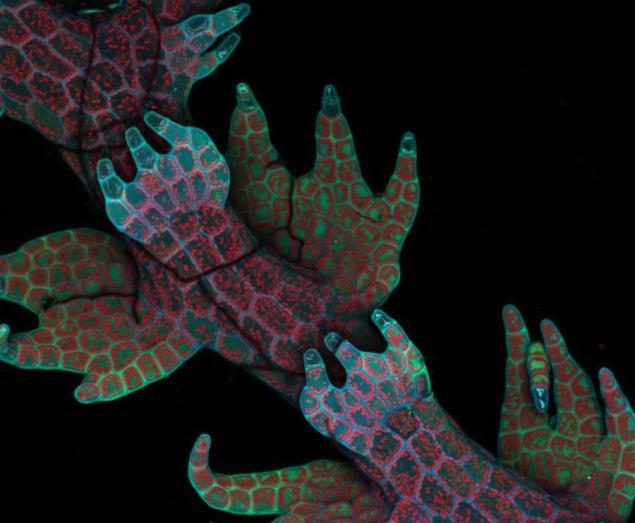
Crystal leucite crystal from volcanic rock, photo taken by Dr. Michael M. Wright of the Steinmann Institute, University of Bonn, Germany.
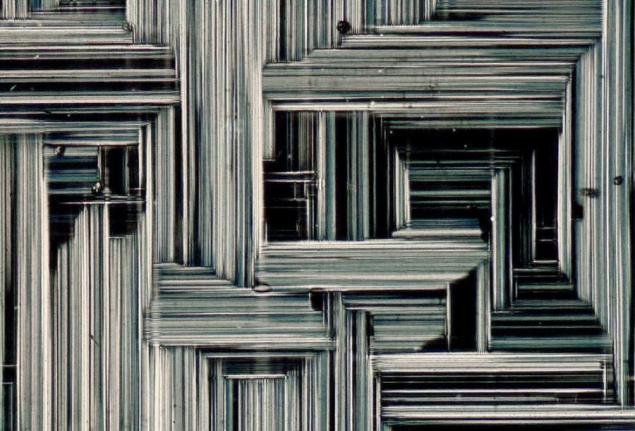
Water flea (Daphnia sp.) Among the green algae, photo taken by Dr. Ralf Wagner, from Dusseldorf, Germany.
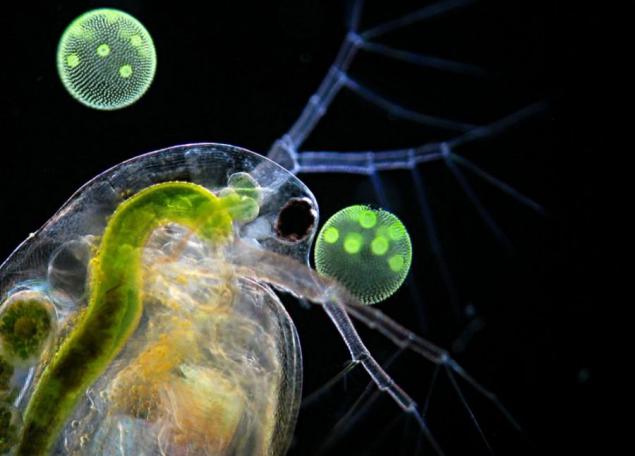
Pekka Honkanoshi, Finland, took this photo oblong snowflakes.
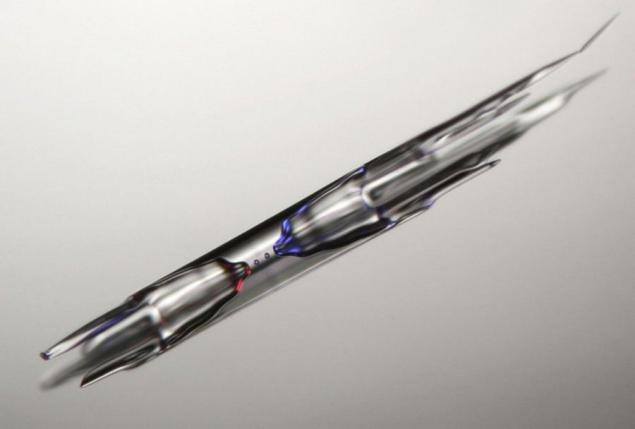
Embryonic pectoral fin Chiloscyllium plagiosum, spotted bamboo shark photographed Dr. Andrew Gillis, University of Cambridge, Cambridge, UK.
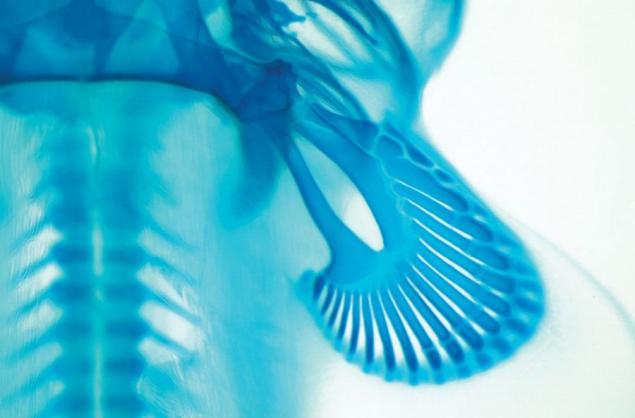
Which took place at the competition twentieth Douglas Moore of the University "Wisconsin-Stevens Point" in Stevens Point, Wisconsin. The photograph Moore - a sample of bone cells dinosaur fossils cellular structures of animals that lived about 150 million years ago, photographed at a magnification of 42 times.
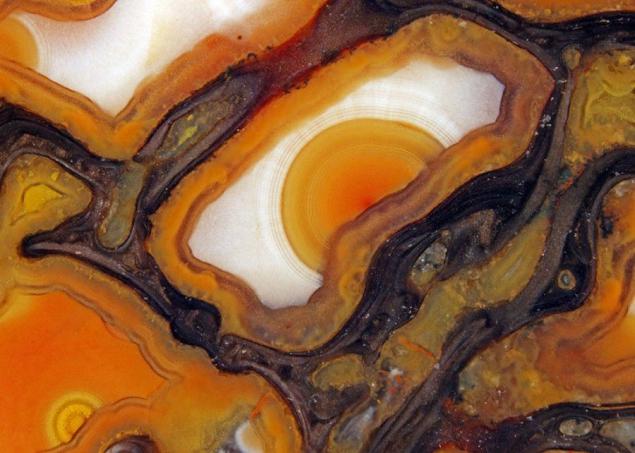
And Charles Krebs, Washington, photographed water boatman (Corixidae sp.), In the reflected light.
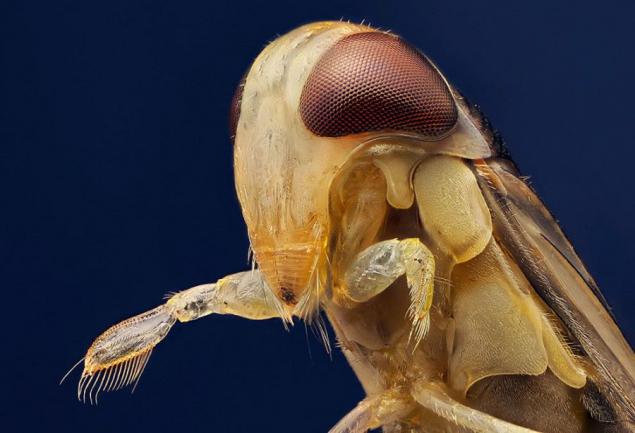
The eyes of the male mosquito-Bibionidae black (Bibio Marci), the picture presented by Dr. David Maitland from Feltvella, UK.
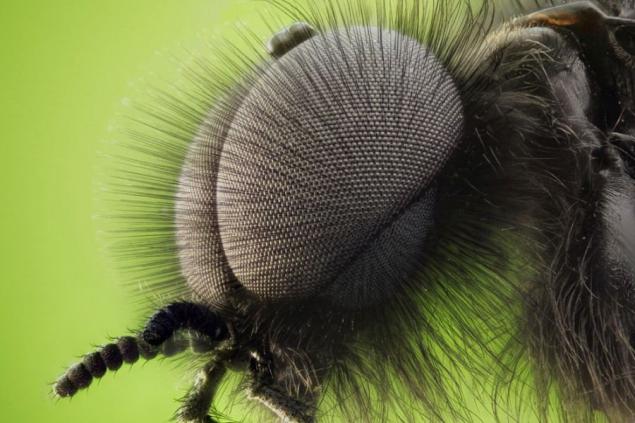
Formed naturally by frost crystals that are formed per night on a fence at a temperature of -15 degrees Celsius. The photo was taken from Jasper Hron Silkeborg, Denmark.
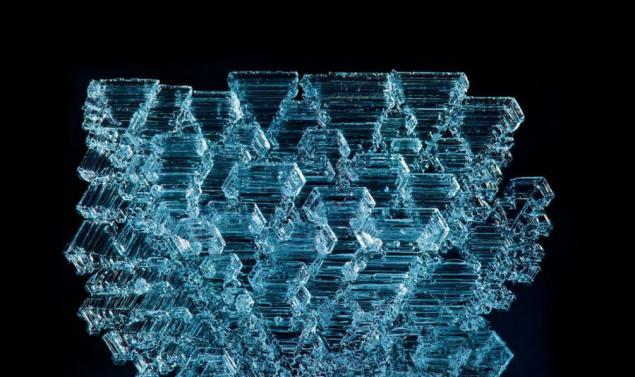
Fish lice (Argulus), photographed at a magnification of 60 times of Wim van Egmond Micropolitan Museum in Rotterdam, Netherlands.
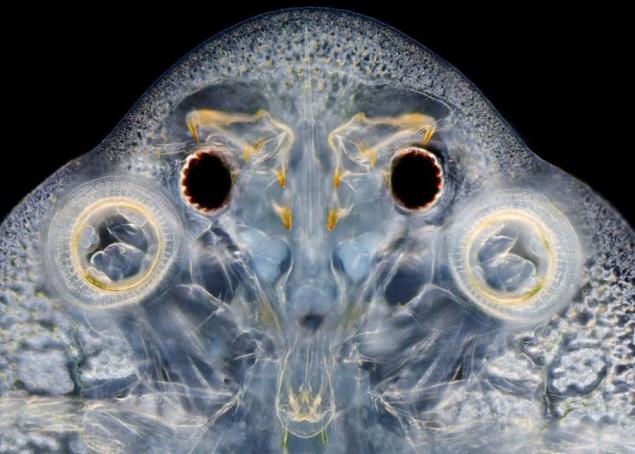
Dr. Torsten Wittmann of the University of California, San Francisco, submitted to the contest this photograph endothelial cells of bovine pulmonary artery
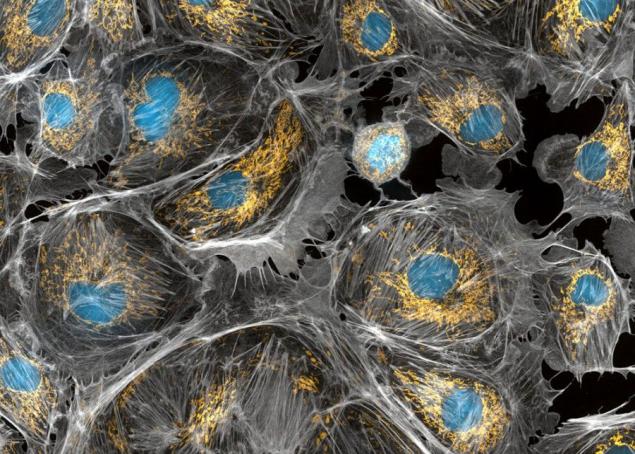
Closeup photographed velvet Trombidiidae (Eutrombidium rostratus), Photo of Dr. David Maitland Feltvella, UK.
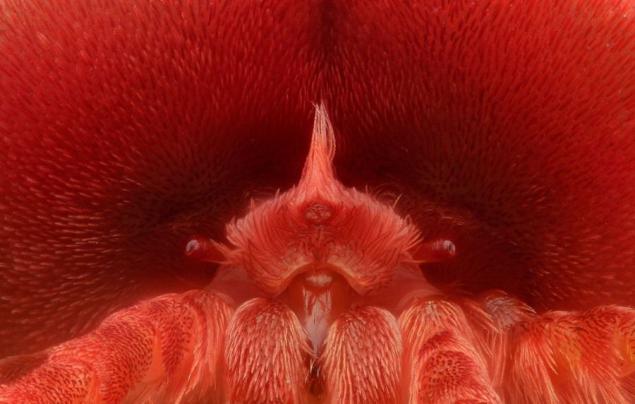
Get the tenth place in the contest made with a magnification of 100 times Photo freshwater flea (Daphnia Magna), represented by Joan Roll from the Institute of Biochemistry and Biology in Potsdam, Germany.
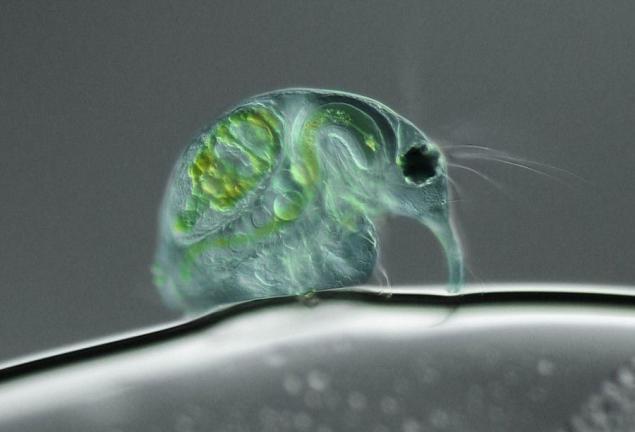
James H. Nicholson of the Scientific Center NOAA / NOS / NCCOS / CCEHBR in Charleston, South Carolina got 15th place with a photo of coral (Porites Lobata).
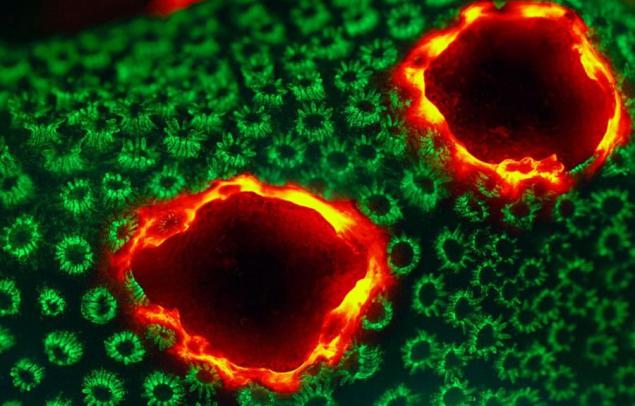
Eyes Spider-horse, photography was Walter Piorkovski Illinois.
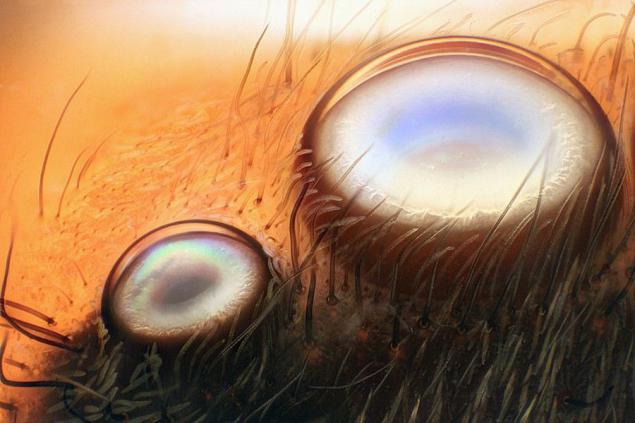
Source
Head and eye freshwater prawn, picture Jose R. Almodovar center of microscopy, Faculty of Biology, University of Mayaguez, Puerto Rico.

Dr. Douglas Clark of San Francisco, California, presented to the competition this photograph of a butterfly wing scales (Cethosia Biblis) in incandescent light.

Cancer cells are photographed at a magnification of 3000 times. Photo of Thomas Dirinka from the National Center for Microscopy in La Jolla, California, took twelfth place.

Ranked fourth in the competition, a photograph taken by Dr. Robin Young of the University of British Columbia in Vancouver, British Columbia. The photo depicted liverworts (Lepidozia reptans) with increasing twenty times.

Crystal leucite crystal from volcanic rock, photo taken by Dr. Michael M. Wright of the Steinmann Institute, University of Bonn, Germany.

Water flea (Daphnia sp.) Among the green algae, photo taken by Dr. Ralf Wagner, from Dusseldorf, Germany.

Pekka Honkanoshi, Finland, took this photo oblong snowflakes.

Embryonic pectoral fin Chiloscyllium plagiosum, spotted bamboo shark photographed Dr. Andrew Gillis, University of Cambridge, Cambridge, UK.

Which took place at the competition twentieth Douglas Moore of the University "Wisconsin-Stevens Point" in Stevens Point, Wisconsin. The photograph Moore - a sample of bone cells dinosaur fossils cellular structures of animals that lived about 150 million years ago, photographed at a magnification of 42 times.

And Charles Krebs, Washington, photographed water boatman (Corixidae sp.), In the reflected light.

The eyes of the male mosquito-Bibionidae black (Bibio Marci), the picture presented by Dr. David Maitland from Feltvella, UK.

Formed naturally by frost crystals that are formed per night on a fence at a temperature of -15 degrees Celsius. The photo was taken from Jasper Hron Silkeborg, Denmark.

Fish lice (Argulus), photographed at a magnification of 60 times of Wim van Egmond Micropolitan Museum in Rotterdam, Netherlands.

Dr. Torsten Wittmann of the University of California, San Francisco, submitted to the contest this photograph endothelial cells of bovine pulmonary artery

Closeup photographed velvet Trombidiidae (Eutrombidium rostratus), Photo of Dr. David Maitland Feltvella, UK.

Get the tenth place in the contest made with a magnification of 100 times Photo freshwater flea (Daphnia Magna), represented by Joan Roll from the Institute of Biochemistry and Biology in Potsdam, Germany.

James H. Nicholson of the Scientific Center NOAA / NOS / NCCOS / CCEHBR in Charleston, South Carolina got 15th place with a photo of coral (Porites Lobata).

Eyes Spider-horse, photography was Walter Piorkovski Illinois.

Source

